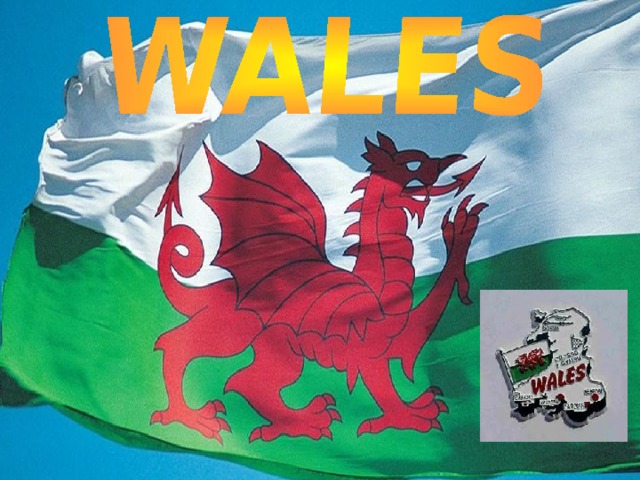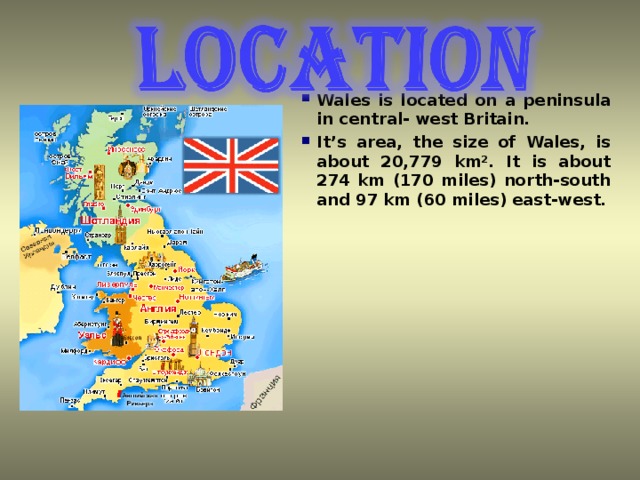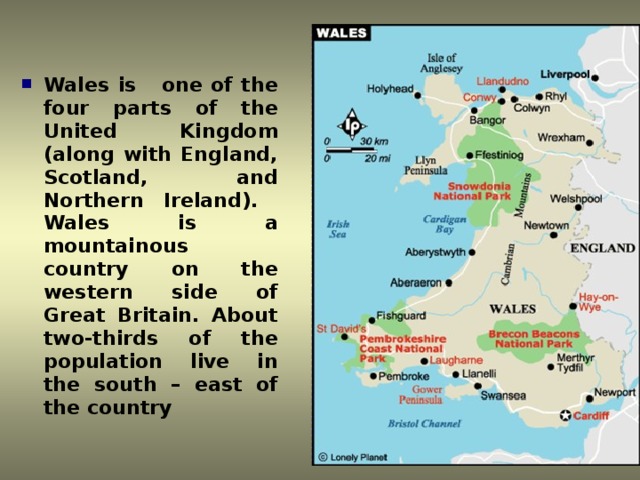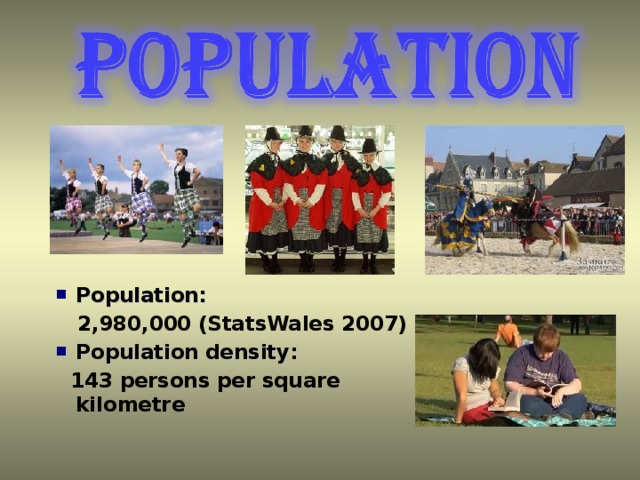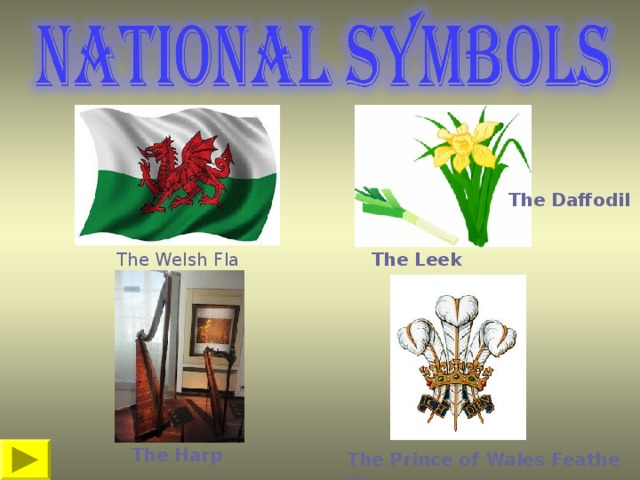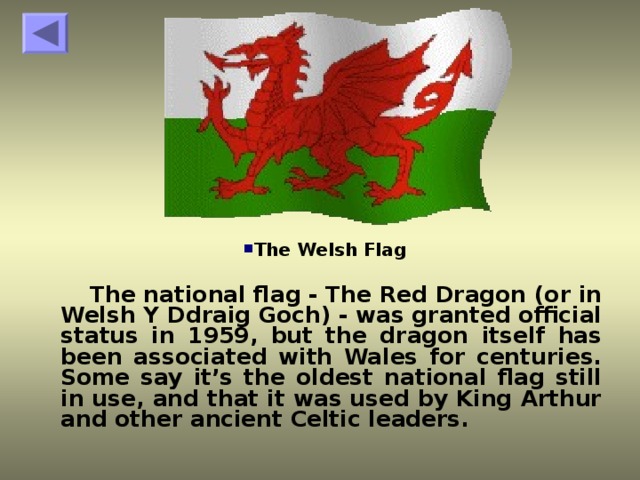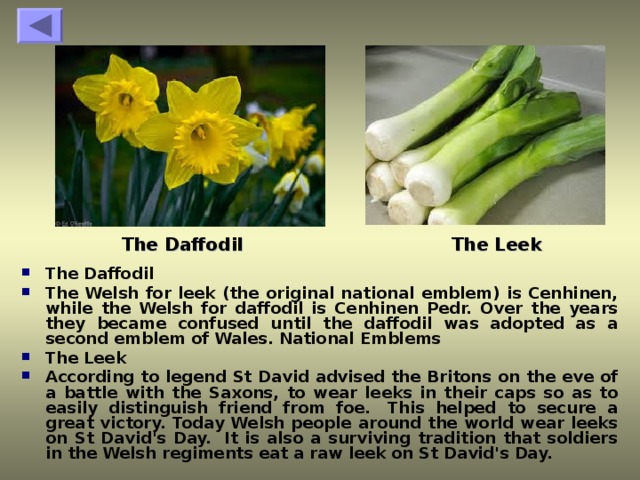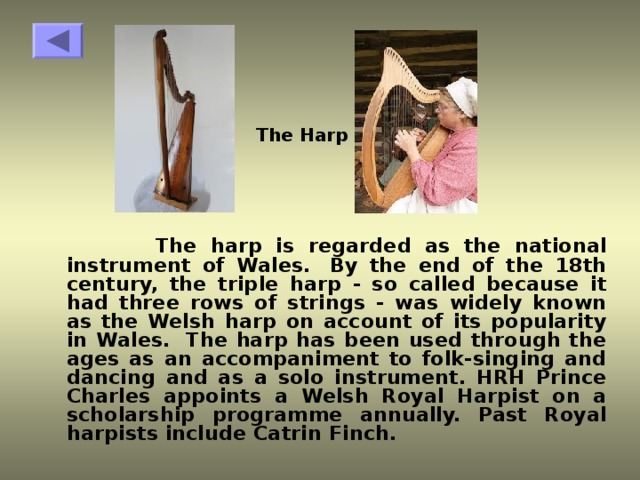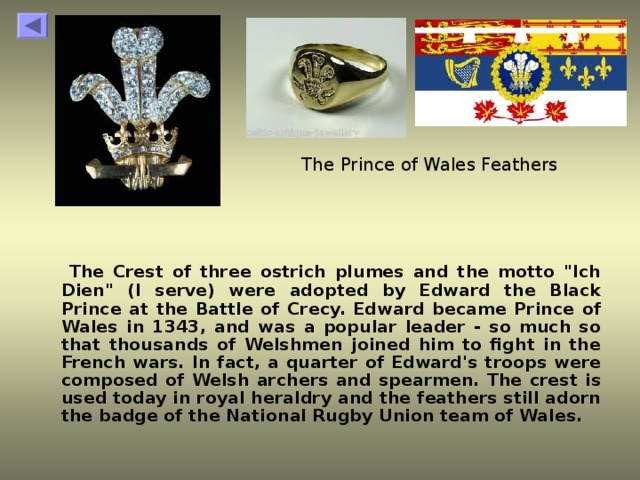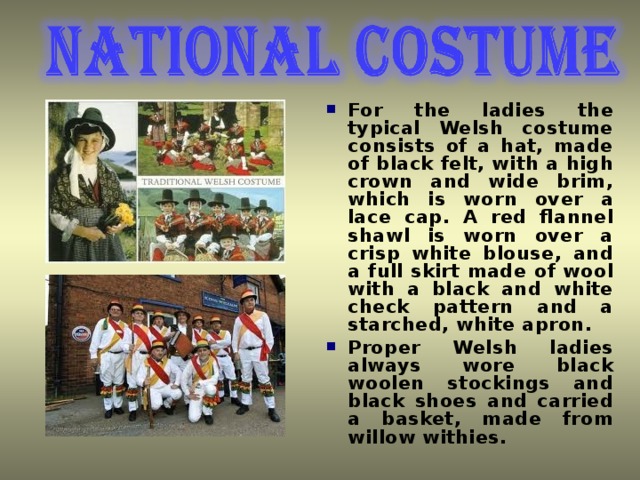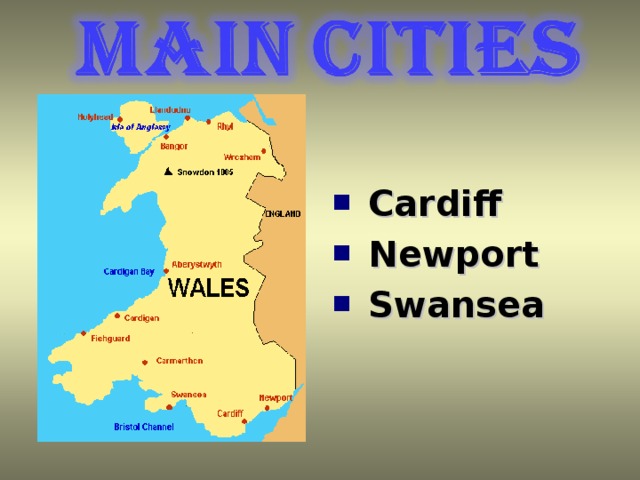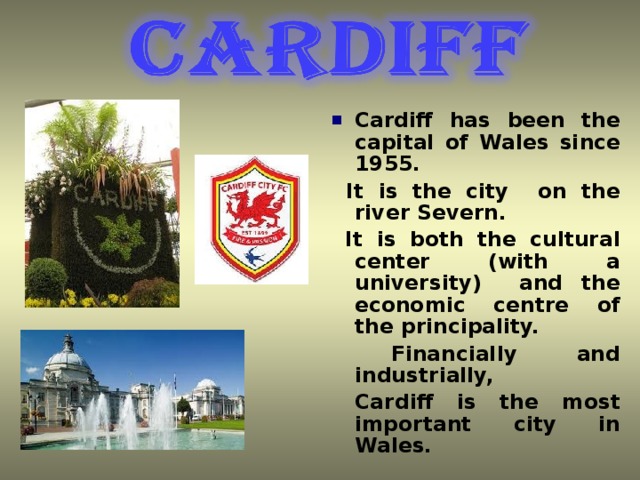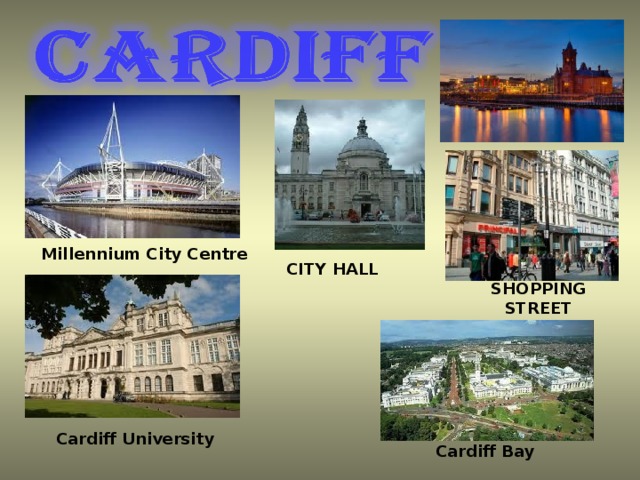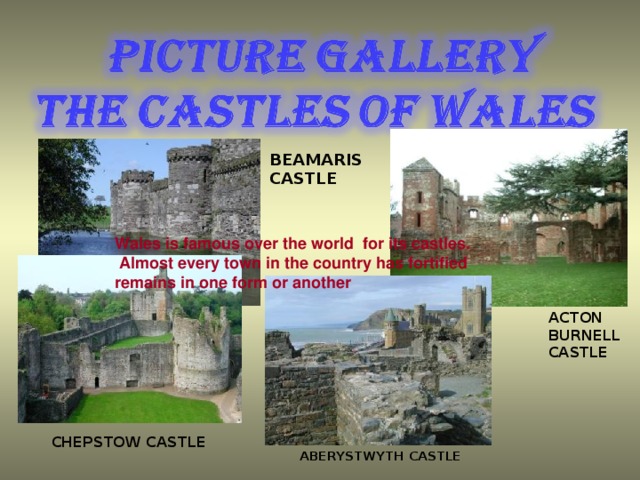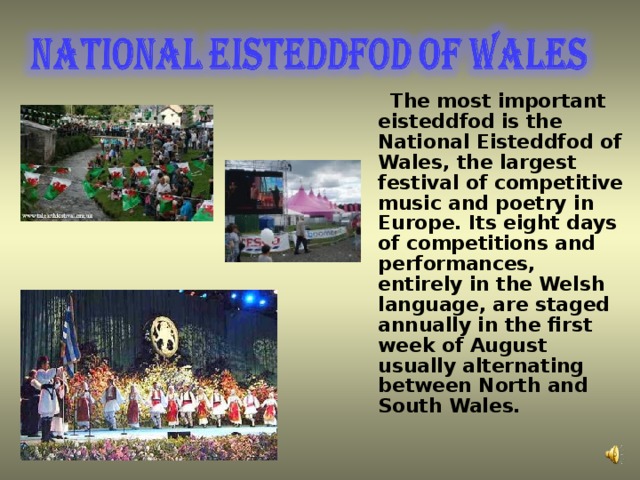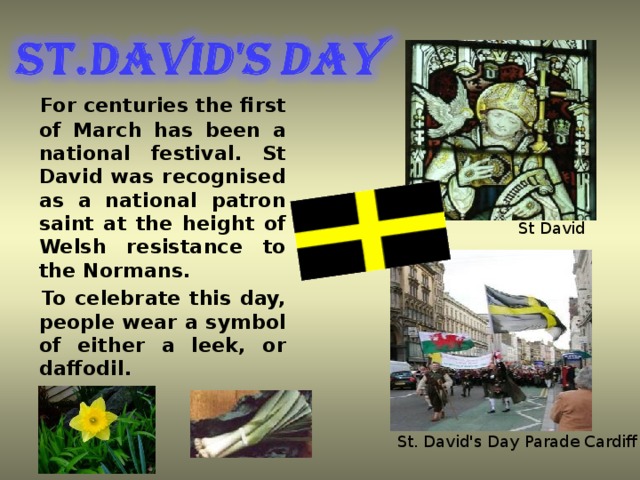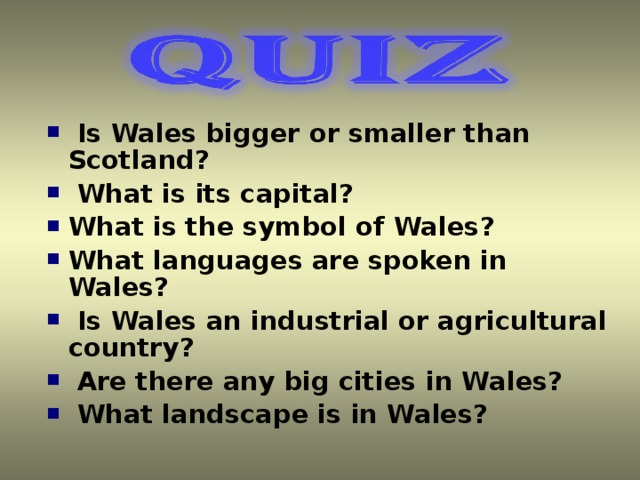Данная презентация содержит интересную информацию о части Великобритании - Уэльс.Рассмотрен материал о климатических и географических особенностях страны, популяции, столице, праздниках и традициях. Уделяется особое внимание символике страны. Будет полезна при изучении темы "Великобритания", в 6 классе. Также разработана викторина, напрвленная на закрепление изученных знаний.
Создайте Ваш сайт учителя Видеоуроки Олимпиады Вебинары для учителей
Уэльс - как часть великой Британии.
Вы уже знаете о суперспособностях современного учителя?
Тратить минимум сил на подготовку и проведение уроков.
Быстро и объективно проверять знания учащихся.
Сделать изучение нового материала максимально понятным.
Избавить себя от подбора заданий и их проверки после уроков.
Наладить дисциплину на своих уроках.
Получить возможность работать творчески.
Просмотр содержимого документа
«Уэльс - как часть великой Британии. »
Полезное для учителя
Распродажа видеоуроков!
2160 руб.
3080 руб.
2160 руб.
3080 руб.
1880 руб.
2690 руб.
1860 руб.
2660 руб.
ПОЛУЧИТЕ СВИДЕТЕЛЬСТВО МГНОВЕННО
* Свидетельство о публикации выдается БЕСПЛАТНО, СРАЗУ же после добавления Вами Вашей работы на сайт
Удобный поиск материалов для учителей
Проверка свидетельства
